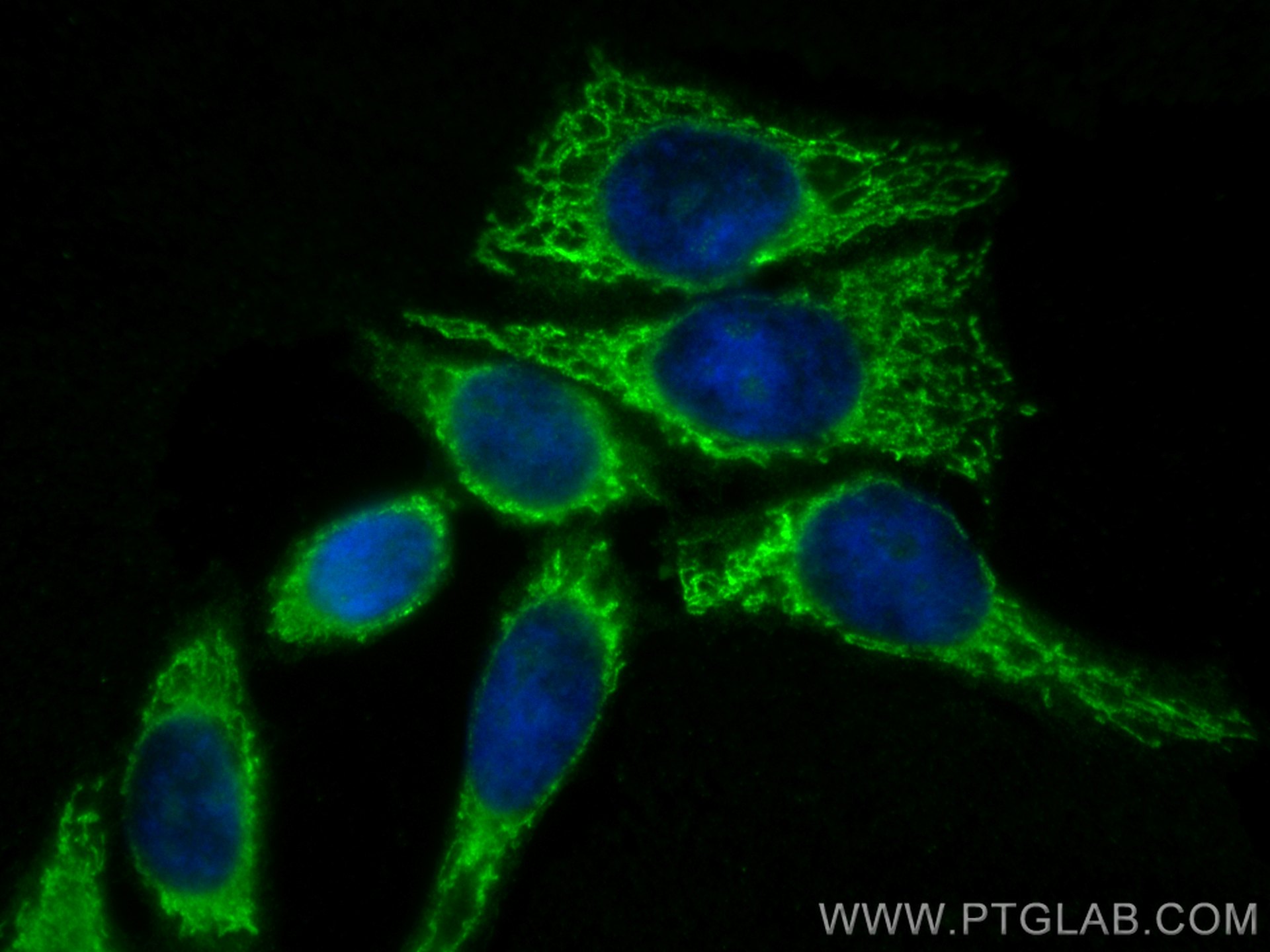Validation Data Gallery
Filter:
Tested Applications
| Positive IF/ICC detected in | HepG2 cells |
Recommended dilution
| Application | Dilution |
|---|---|
| Immunofluorescence (IF)/ICC | IF/ICC : 1:50-1:500 |
| It is recommended that this reagent should be titrated in each testing system to obtain optimal results. | |
| Sample-dependent, Check data in validation data gallery. | |
Product Information
CL488-60113 targets SERPINA10 in IF/ICC applications and shows reactivity with human, rat, pig samples.
| Tested Reactivity | human, rat, pig |
| Host / Isotype | Mouse / IgG2a |
| Class | Monoclonal |
| Type | Antibody |
| Immunogen | SERPINA10 fusion protein Ag2420 相同性解析による交差性が予測される生物種 |
| Full Name | serpin peptidase inhibitor, clade A (alpha-1 antiproteinase, antitrypsin), member 10 |
| Calculated molecular weight | 444 aa, 51 kDa |
| GenBank accession number | BC022261 |
| Gene Symbol | SERPINA10 |
| Gene ID (NCBI) | 51156 |
| RRID | AB_2883103 |
| Conjugate | CoraLite® Plus 488 Fluorescent Dye |
| Excitation/Emission maxima wavelengths | 493 nm / 522 nm |
| Form | Liquid |
| Purification Method | Protein A purification |
| UNIPROT ID | Q9UK55 |
| Storage Buffer | PBS with 50% glycerol, 0.05% Proclin300, 0.5% BSA{{ptg:BufferTemp}}7.3 |
| Storage Conditions | Store at -20°C. Avoid exposure to light. Stable for one year after shipment. Aliquoting is unnecessary for -20oC storage. |
Background Information
SERPINA10 belongs to the serpin family. It is predominantly expressed in the liver and secreted in plasma. It inhibits the activity of coagulation factors Xa and XIa in the presence of protein Z, calcium and phospholipid. Mutations in this gene are associated with venous thrombosis.
Protocols
| Product Specific Protocols | |
|---|---|
| IF protocol for CL Plus 488 SERPINA10 antibody CL488-60113 | Download protocol |
| Standard Protocols | |
|---|---|
| Click here to view our Standard Protocols |
